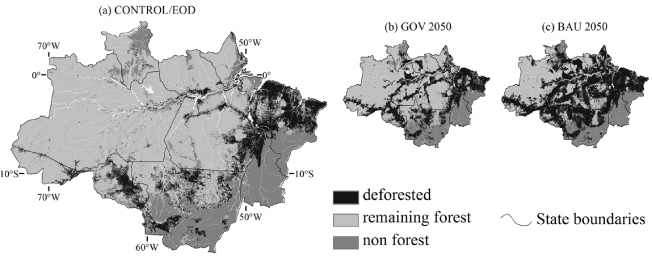Celebrating Plants and People
-
Secrets Of Ancient Pollinators Revealed: Cretaceous Flies In Amber
The scientific team has showed that these flies took nectar from plants by approaching them in beating flight, like hummingbirds do.
-
Commercial Fruit Plantings Can Attract Bats For Tropical Reforestation
Commercial tropical fruits such as banana (Musa paradisiaca) and mango (Mangifera indica), chosen by their year-round availability, low price, and allure for bats, can act as olfactory attractants and increase bat species richness and abundance, which in turn increase seed-rain, promote seed establishment, and may accelerate the regeneration process in perturbed areas.
-
Non-Native Plants Can Make Better Habitat For West Nile Virus Mosquitoes
What’s exciting about this is that it suggests that blackberry functions as a kind of ecological trap, enticing mosquitoes to lay their eggs in a place where the larvae are unlikely to survive.
-
Ancient Tree Stumps And New Science Reveal Fire Ecosystem’s Secrets
Today, land managers actively burn the landscape to restore and mimic the natural cycle. But there’s a problem — we don’t actually know when or how often the pinelands burned, and there’s a distinct lack of “natural” pinelands left to provide clues. We have a lot of anecdotal and ideas about how these systems used…
-
Walks In Nature Shown To Be Essential To Mental Health
Through a controlled experiment, we investigated whether nature experience would influence rumination (repetitive thought focused on negative aspects of the self), a known risk factor for mental illness. Participants who went on a 90-min walk through a natural environment reported lower levels of rumination and showed reduced neural activity in an area of the brain…
-

Study Declares Agriculture In Deforested Amazon Will Fail
As a final word, large-scale agriculture expansion in Amazonia may introduce climate feedbacks that would reduce precipitation, leading agriculture expansion in Amazonia to become self-defeating: the results of this study suggest that the more agriculture expands, the less productive it becomes. This would be a no-win situation, in which we all lose. Therefore, agriculture expansion…
-
Thank Caterpillars For Pushing Plants To Be Spicy
The next time you slather mustard on your hotdog or horseradish on your bun, thank caterpillars and brassica for that extra flavor. While these condiments might be tasty to you, the mustard oils that create their flavors are the result of millions of years of plants playing defense against pests. But at the same time,…
-
Winter-Flowering Tree Adapted to Switch To Bird Pollinators When Temperature Drops
Our study demonstrated that passerine birds served as effective pollinators in Eriobotrya japonica, a winter-flowering fruit tree in Central China. In the studied population, bees were the major visitors in early winter when the temperature was relatively high, and birds were major visitors in late winter when the temperature was relatively low.
-
Restoration Ecology: Are Natives The Only Answer Or Just The Answer We wish For?
Many ecosystems have been degraded or modified, and these are the sorts of systems you target for restoration. But when a system has been altered so much the original species might not be the best choice to bring it back to health.
-
Can Leukaemia Be Defeated By Avacados?
Canadian researchers have shown that molecules derived from avocados can help to treat a form of leukaemia by targeting the root cause of the disease – its stem cells.
